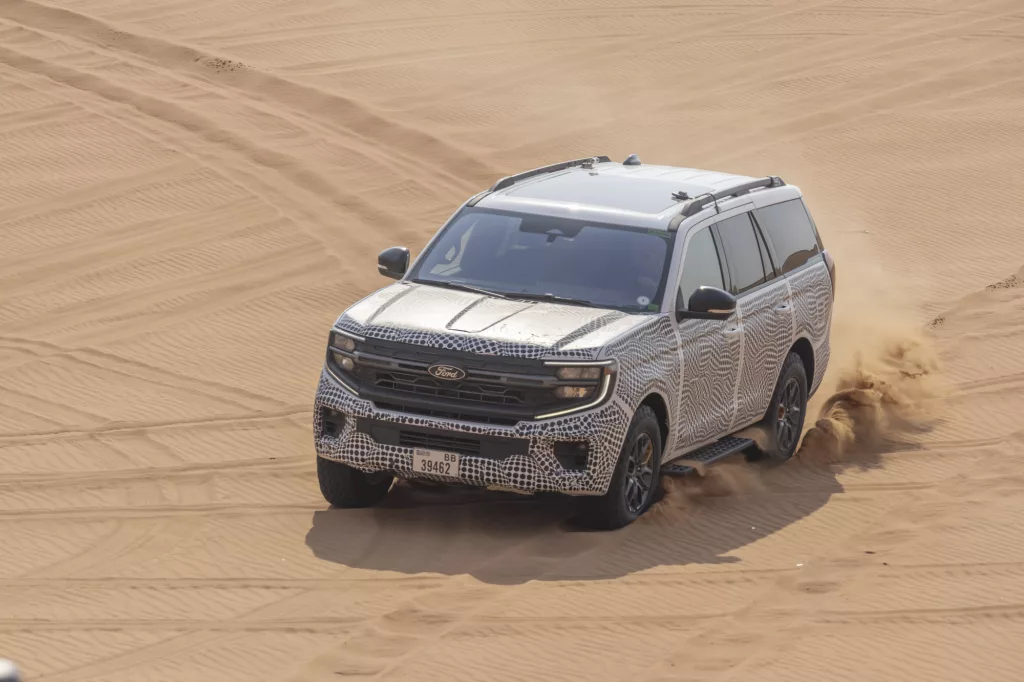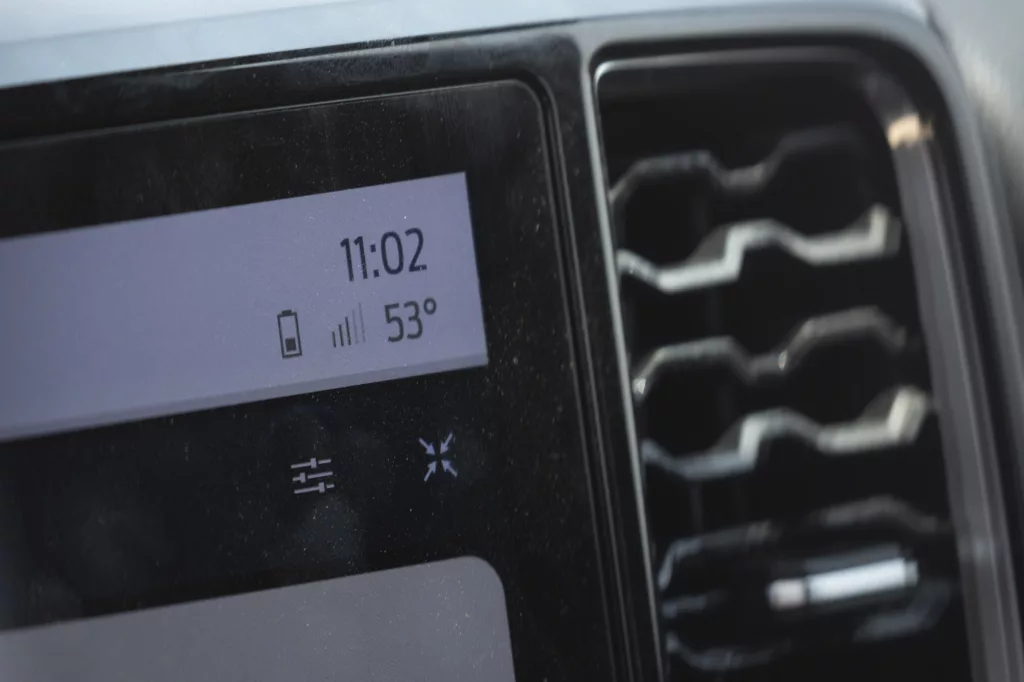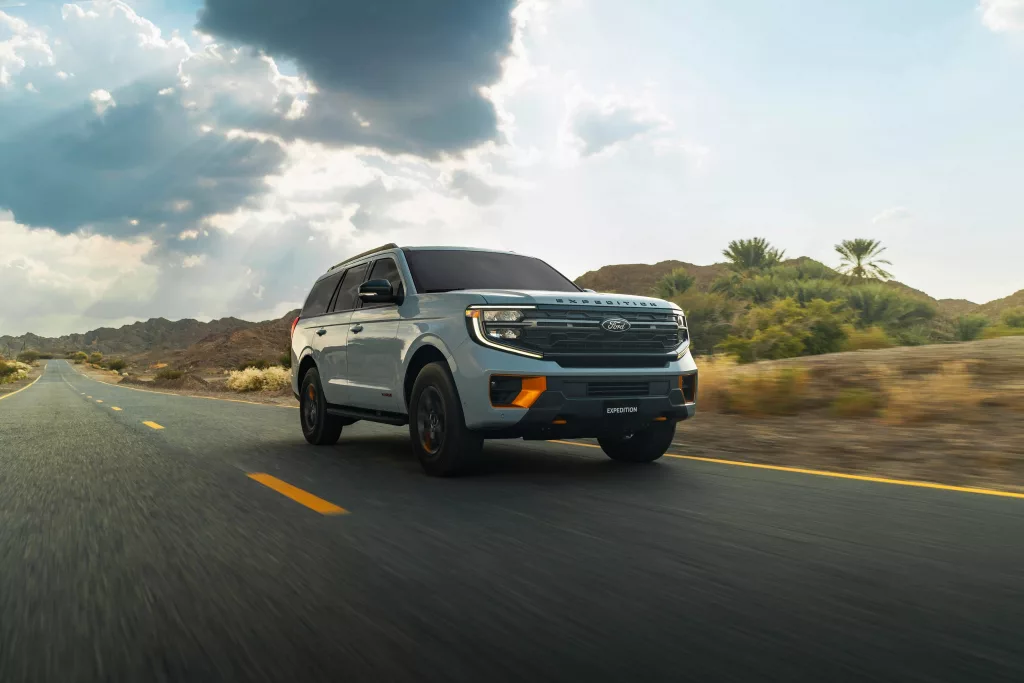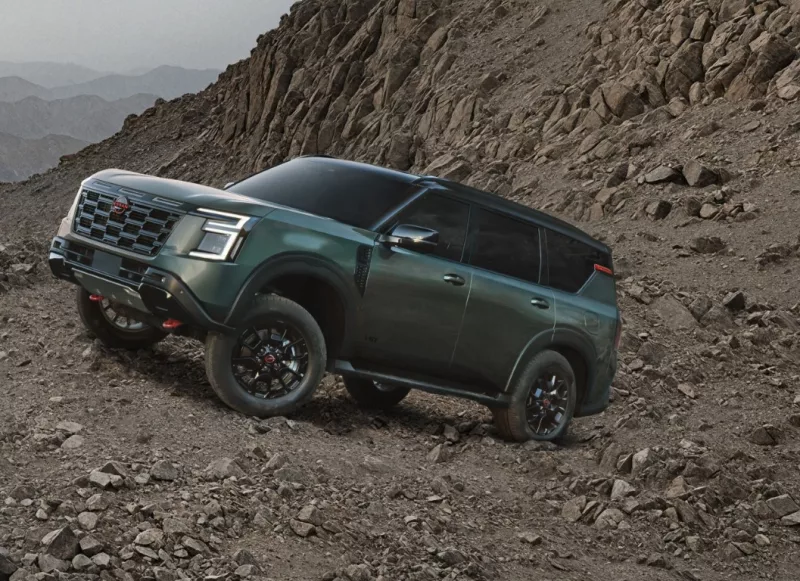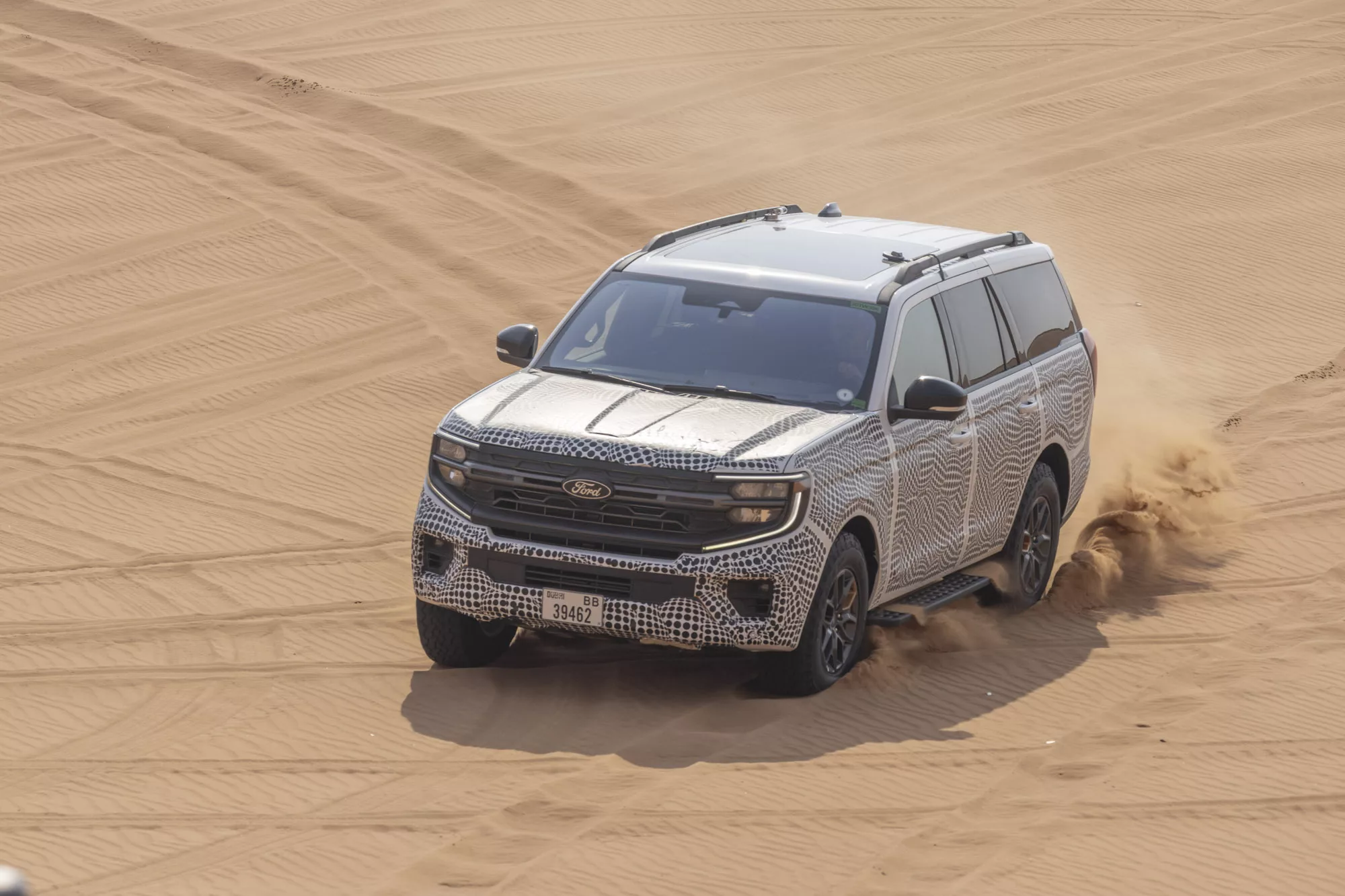
Not Your Average SUV: Ford Expedition is Built to Beat the Region’s Relentless Heat and Conquer its Toughest Terrain
Welcome to one of the world’s most diverse regions: the Middle East and North Africa, a catchment area known for its extreme temperatures and challenging driving conditions. Not to mention sandstorms coating everything in a fine, abrasive layer, and relentless tarmac-melting summer sun. For Ford, however, it also provides a crucial proving ground for perfecting its products.
Before any Ford vehicle—from its smallest sedan to the most off-road capable Expedition ever—earns its place on Middle East and North African roads, it must endure a battery of rigorous hot weather tests designed to ensure quality, reliability, and performance.
Ford understands deeply that vehicles operating in this region face unique challenges, like intense heat that can degrade materials, stress mechanical components, and impact the efficiency of vital systems. Sand and dust, too, can infiltrate sensitive areas, causing wear and tear.
That’s why the Blue Oval brand invests so heavily in comprehensive hot weather testing programs, pushing its vehicles to their limits in environments that mirror the realities of Middle East and North African driving. Having an engineering team based in the region for the past 15 years, teamed with the invaluable learnings that come from in-market scrutineering, has instilled a sense of heritage in the practice of rigorous local testing for Ford vehicles across MENA, and has in turn contributed to the final design of various models.
Each year, Ford MENA-based engineers brave the Dubai heat to put Ford’s vehicles fit for every lifestyle through their paces. Not simply a casual city drive, nor a gentle dune-bash in the dominating flagship Ford Expedition SUV; rather a precisely planned series of tests designed to expose potential weaknesses and ensure that every component can withstand the harsh conditions.
The testing process is multi-faceted, often drawing visitors from Ford’s US team, and encompasses everything from engine performance and cooling system efficiency to air conditioning effectiveness and the durability of interior materials; particularly prudent given the cabin environment can hit summer highs in excess of 50 degrees Celsius.
Kartik Ramanathan, Vehicle Engineering Manager, Ford Expedition, on his most recent visit for hot weather testing, said: “The Europe, Middle East and Africa (EMEA) markets are crucial for Ford. We’ve dedicated significant engineering effort to tailor the all-new Expedition for the region. We believe that we have improved the overall ride, climate performance and achieved a good balance between the off-road capability and on-road comfort on this product. That being said, we are constantly seeking opportunities to further refine the product and enhance the customer driving experience.”
Throughout the extreme climate testing process, vehicles like the most off-road capable Expedition ever are subjected to prolonged exposure to direct sunlight, simulating the penetrating heat experienced during a typical summer across the region, and driven on a variety of surfaces, including paved roads, gravel tracks and sand dunes to assess their performance in different terrains.
Of course, a critical area of focus for Ford Middle East and North Africa is the engine. Exceptionally high temperatures are prone to prompt a reduction in engine power and increase the risk of overheating. Ford MENA’s engineers, however, meticulously monitor engine temperatures, oil pressure, and other vital parameters to ensure that the engine can maintain optimal performance even under extreme stress, while the cooling system is simultaneously put to the test, with evaluation of its ability to dissipate heat and prevent the engine from overheating.
The air conditioning system is another crucial component. In this region more than most, a functioning AC is not just a luxury; it’s a necessity. The Dubai-based engineering team methodically test the cabin cooling system to ensure that it can maintain a comfortable respite from external temperatures, even when the outside situation sees the mercury soar. The testing, too, includes the system’s ability to dehumidify the air, preventing condensation and ensuring clear visibility.
Beyond the mechanical and electrical systems, though, Ford pays particularly close attention to the durability of interior materials. Intense heat and sunlight traditionally cause plastics to crack, fabrics to fade, and leather to dry out. In using specialized testing equipment to simulate years of exposure to these conditions, Ford can deliver vehicles replete with interior materials that will withstand the severities of the region’s climate.
The Expedition is a prime example of a vehicle that benefits from this pain-staking testing. Fully redesigned for families with big lives, the Expedition needs to be reliable and capable in all conditions, so Ford’s intricate hot weather testing program guarantees it can beat the heat, sand, and demanding terrain of the Middle East and North Africa with ease.
On the Expedition’s suitability for the region, Adrian Aguirre, Chief Program Engineer, Ford Expedition, said: “I think it’s incredibly well suited. It’s designed with unique elements for the region. We’ve got a cool box standard from the factory now, a unique cooling system up front to deliver additional capability, and we’ve designed an all-new and unique fascia for the region that improves our approach angle. So, that means anyone that buys an Expedition can feel great in an urban setting and then go enjoy the outdoors.”
Ford’s commitment to quality extends beyond the major components, though, where even seemingly minor details are carefully evaluated, such as temperature sensors which play a crucial role in collision avoidance systems. Needing to be accurate and reliable in all conditions, Ford’s team test them intently to safeguard their proper functionality, even when exposed to direct sunlight and high temperatures.
Ultimately, Ford’s commitment to hot weather testing is a testament to its dedication to, not simply, quality—identifying potential weaknesses and make necessary improvements before the vehicles are sold to customers—but also customer satisfaction. By pushing its vehicles to their limits in the most challenging environments, Ford ensures that its customers in the Middle East and North Africa can rely on their vehicles to perform flawlessly, no matter the conditions.
“Ford’s long-standing commitment to the Middle East and North Africa—and to customers who have trusted the Ford brand for many decades—goes beyond our physical footprint here,” said Ravi Ravichandran, President of Ford Middle East and North Africa. “It’s evident in our thorough intricate testing of vehicles in, and specifically for, the region to guarantee the nameplates we bring to market are not just suitable, but in fact built with MENA customers in mind.”
From the slightest sensor to the cool cabin breeze of its biggest SUV, every Ford vehicle is built to withstand the stifling heat and shifting sands of the region, providing drivers with a safe, reliable, and enjoyable driving experience.
